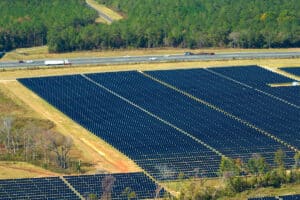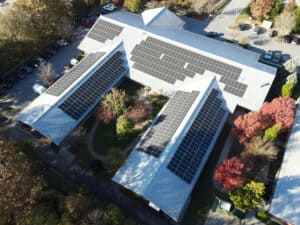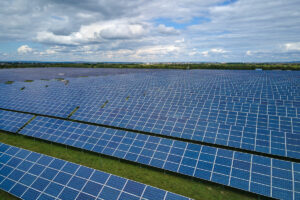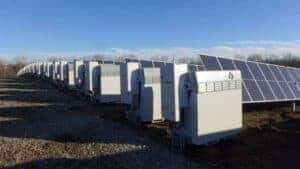In recent years, renewable energy sources such as solar power have become increasingly popular due to their potential to reduce carbon emissions and lower energy costs. However, solar energy is not always available when it is needed, as it relies on sunlight. Battery storage can address this issue by storing excess solar energy for use when the sun is not shining. This article will explore the benefits of combining solar and battery storage for commercial use.
Explanation of the Problem
Commercial businesses typically consume large amounts of energy throughout the day, often leading to high energy costs. Traditionally, these businesses would rely on electricity from the grid, which is generated by non-renewable sources such as coal and natural gas. These sources produce harmful emissions that contribute to climate change. Moreover, commercial businesses are at the mercy of grid outages and fluctuations, which can significantly impact their operations and bottom line.
Overview of the Solution
By combining solar energy and battery storage, commercial businesses can address both their energy needs and environmental concerns. Solar energy provides a clean and renewable source of electricity, while battery storage allows businesses to store excess energy for use during periods of low solar production or grid outages. This combination enables businesses to reduce their reliance on the grid, lower their energy costs, and decrease their carbon footprint.
Importance of Solar Energy and Battery Storage
As the world transitions towards a more sustainable future, the importance of renewable energy sources cannot be overstated. Businesses that adopt renewable energy technologies such as solar and battery storage not only contribute to a cleaner and healthier environment but also position themselves as leaders in sustainability. Additionally, renewable energy sources are becoming increasingly cost-competitive with traditional sources of energy, making them a smart financial choice for businesses looking to lower their operational costs.
Understanding Solar Energy and Battery Storage
Solar energy is generated when photovoltaic (PV) panels convert sunlight into electricity. The energy produced by PV panels is direct current (DC), which must be converted to alternating current (AC) before it can be used by commercial businesses. This conversion is done by a device called an inverter. The energy produced by solar panels can be used directly by the business, stored in batteries for later use, or fed back into the grid.
Battery storage systems allow businesses to store excess solar energy for use when needed. These systems consist of batteries that store DC electricity and inverters that convert DC electricity to AC. When solar panels produce more energy than the business needs, the excess energy is stored in the batteries. When solar panels produce less energy than the business needs, the batteries provide additional electricity.
Advantages of Using Solar Energy Using solar energy provides numerous benefits for commercial businesses, including:
- Cost savings: Solar energy can significantly lower energy costs, especially in regions with high electricity rates.
- Environmental sustainability: Solar energy is a clean and renewable source of energy that produces no emissions or pollutants.
- Energy independence: Solar energy allows businesses to generate their electricity, reducing their reliance on the grid.
- Long-term investment: Solar panels have a lifespan of 25 to 30 years, providing businesses with a long-term investment in their energy infrastructure.
Advantages of Using Battery Storage Using battery storage provides additional benefits for commercial businesses, including:
- Increased energy reliability: Battery storage systems provide backup power in case of grid outages or other disruptions.
- Increased energy efficiency: Battery storage systems enable businesses to use more of the energy generated by solar panels, reducing waste.
- Demand management: Battery storage systems can help businesses manage peak demand periods, reducing energy costs.
For more information about the importance of solar battery connections and commercial solar systems, check out Energy Link’s solar solutions.






